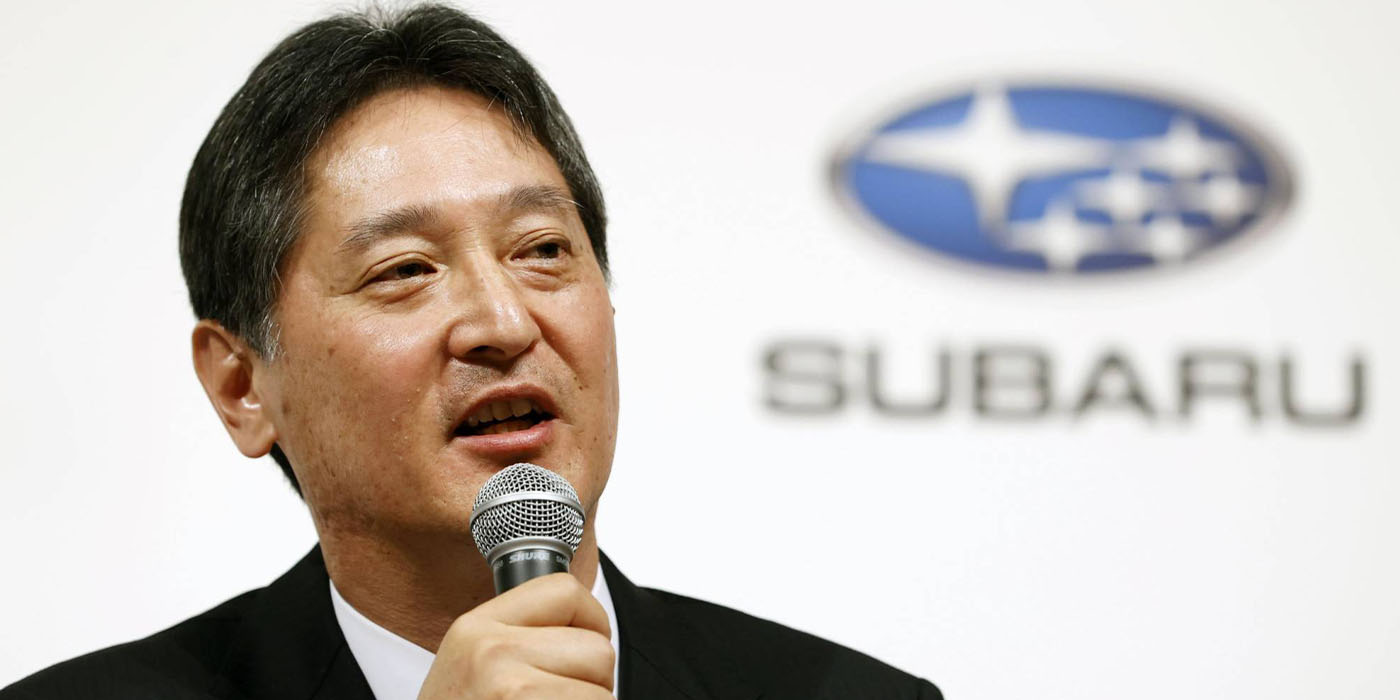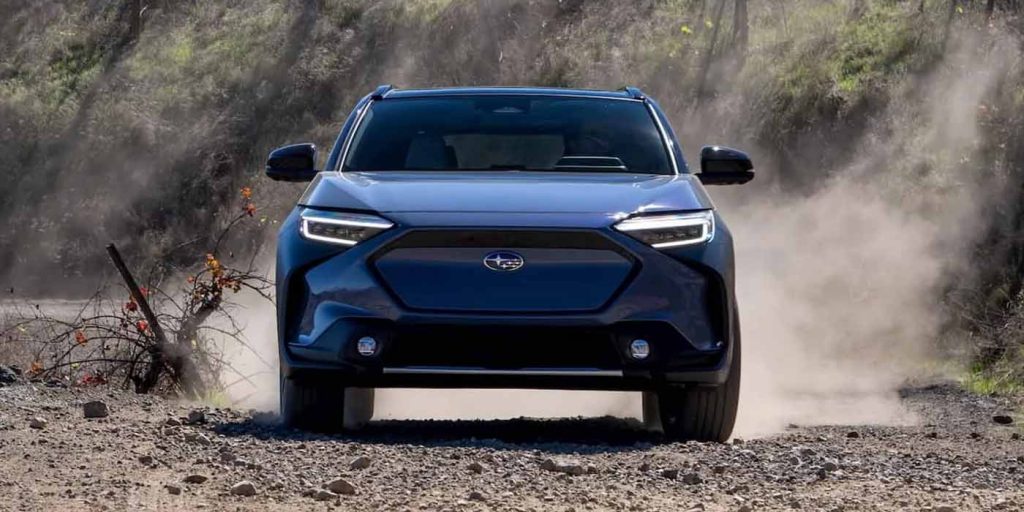
Two months into his term as the new CEO of Subaru, Atsushi Osaki is making some admirable changes that could soon benefit US consumers and our planet’s ecosystem. The Japanese automaker looks to ride a wave of massive annual profits into a new transition of bolstered EV production that includes at least four all-electric Subaru models.
After years and years of stubbornness and minimal effort to expand EV production, Subaru appears to have pulled its head out of the sand and joins the race to try and catch nearly all its competitors that began their sprint years ago.
In early January, fellow Japanese automaker, Toyota, announced a changing of guard at the CEO position, finally recognizing the world’s shift to electric vehicles (although it still counts hybrids jumping, one by one, over a farm fence when it goes to sleep at night).
Nevertheless, Subaru Corporation, which has had strong collaborations with Toyota, took a similar route, appointing its former director and EVP of manufacturing, Atsushi Osaki, to president and CEO this past March.
Under its former chief, Subaru said it would not build EVs in the US because it can’t compete with McDonalds’ $20 starting wage. That appears to still be the case under the Osaki era, but that doesn’t mean new Subaru EVs won’t hit the US market. According to comments from the new CEO this week, we can expect to see four all-electric crossovers by 2026.

Subaru to build 400,000 EVs per year by 2028
Lots of news coming out of Subaru HQ this week. Today, the company shared its financial results for its 2023 fiscal year end on March 31. The company is reporting a near tripling of operating profits compared to a year prior, led by steady sales in Subaru’s key market – the US.
Following today’s report, Subaru CEO Atsushi Osaki laid out the Japanese automaker’s electrification plans going forward, and they’re encouraging. Osaki explained that Subaru will add an additional dedicated EV assembly line to it Oizumi plant in Japan in 2027, adding annual production capacity for another 200,000 vehicles.
Oizumi will compliment a separate EV line at the automaker’s nearby Yajima plant that will also deliver 200,000 EVs a year from around 2026. Combined, Subaru expects to be cranking out as many as 400,000 EVs in Japan per year by 2028.
Top comment by PeterO
I am both a Subaru and a Tesla fan. Having owned several Subies and two Teslas. Rather than follow the tail end of the herd in 2028 I would prefer to see Subaru rework the Outback into an AWD BEV and perhaps a BEV version of the Impreza Sport. Everybody is going to have BEV "Forester" size BEV SUVs so Subaru should do what they do best, establish a niche and exploit it. One of Subarus trump cards was their fantastic AWD system but that advantage has been neutalized by AWD BEVs being quite common. I would also recommend Subaru consider making their BEVs Tesla supercharging friendly and very important build the charger into the car like Tesla does. Most of us charge at home and we only need to make sure we have level 2 power source.
Even before EV production has completely ramped up overseas, Subaru is planning to be building and delivering new, all-electric models to US consumers. According to Osaki, all four of the EVs that are expected to roll out before the end of 2026 should reach the US market.
The new CEO did also confirm that those models will be built entirely in Japan to start, so hopes of garnering any federal tax incentives stateside have already been shot down. Instead, Subaru hopes its EVs can entice US consumers based on lease incentives… Well that and brand loyalty alone. Per outgoing Subaru CEO Tomomi Nakamura:
I wonder if American consumers choose their cars solely based on tax breaks. Our US customers are quality customers. We have a higher ratio of customers buying Subarus with cash, and we also have low loan and lease rates. We also keep our incentives at low levels. We will try not to rely only on the subsidy program.
Looking ahead, Subaru says it plans to source the batteries to support its EV transition with the help of partner Toyota. The automaker now aims to have at least 40% of its global sales come from BEVs by the end of the decade and intends to offer an entirely electric lineup by the “early 2030s.”
Finally, guys.
FTC: We use income earning auto affiliate links. More.



Comments